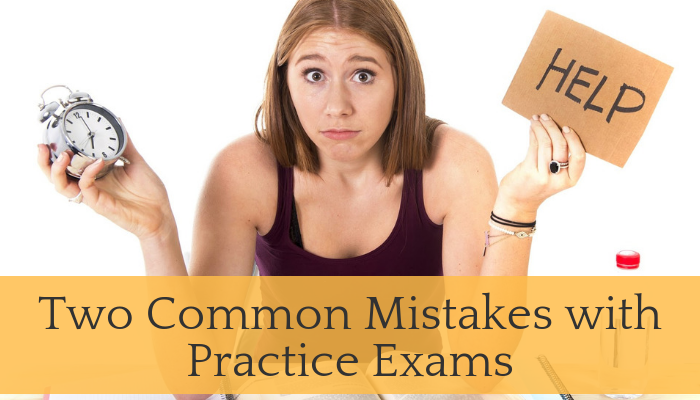It’s common for people to do hundreds of practice problems and still fail the exam (hence the ~50% pass rates). It’s not just about how many problems you do; how you do them is important.
Going into your final weeks before your exam, here are two mistakes to avoid.
Mistake #1: Moving on too quickly
Most people set a goal to finish X number of practice exams over the last few weeks. These goals have good intentions, but they lead to an undesired consequence:
People rush through practice exams without fully learning from their mistakes.
They are so focused on finishing X number of exams that they don’t take the time to review what they got wrong and why. And then they make similar mistakes on future exams.
Before moving on from a practice exam, take the time to analyze your mistakes. And I mean fully analyze them.
Why did you get this question wrong? Did you forget the formula? Did you not know an algebraic trick? Did you misinterpret the question? Did you skip over an important detail? Did you not know a shortcut for solving this type of question?
Use this line of questioning to pinpoint your mistake, and then learn from it. Find the gaps in your knowledge and then fill them. This is the process of improvement that will lead to success on exam day.
There’s no doubt that you need to do a lot of practice problems to pass actuarial exams, but all those problems are useless if you’re not learning from your mistakes in the process.
Before you move on to a new practice exam, make sure you dedicate enough time to review your mistakes.
Mistake #2: Not practicing under exam conditions
My friend reached an Earned Level of 7 on Adapt and still failed FM (90% of students who reach level 7 on Adapt pass the exam).
I was surprised to hear this – until I found out how he was doing practice exams. He used his formula sheet, and he sometimes paused the timer to answer difficult questions.
He got the questions correct and leveled up, but he wasn’t practicing under exam conditions.
If you get in the habit of using a formula sheet while practicing, you’ll be in for a shock when the crutch disappears on the real exam.
If you aren’t used to working under time pressure, you will struggle on exam day.
As you get closer to your exam date, start practicing under exam conditions. Use a stopwatch to time yourself. Don’t allow yourself to use a formula sheet to solve questions.
These additional constraints will force you to make more mistakes, and then you can further hone in on areas to improve (discussed above).
Why couldn’t you solve this question in 5 minutes? Did it take you too long to remember the formula? Were you too slow with your calculator?
The more you push yourself to practice under exam conditions, the less stressed you’ll be on exam day.
Study Smart, Pass Fast, Live Life
Mike & Roy

